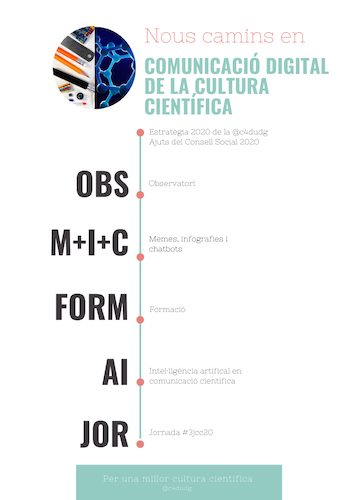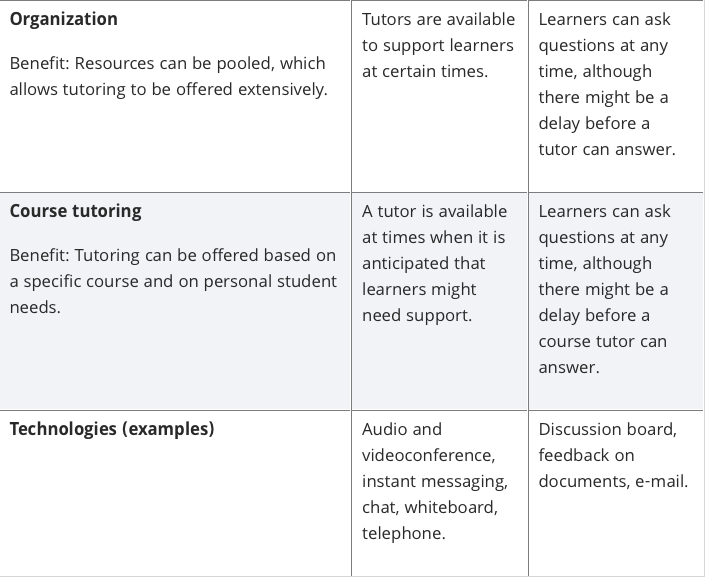 Aquesta setmana ha tornat d’alguna forma la normalitat, amb l’entrada en fase 3 i ràpidament en fase “Represa”. Ara mateix no sé ben bé què es pot fer i què no es pot fer. Més o menys, el de sempre, però. I avui, diumenge, ha tornat la calor, de moment moderada, d’estiu. Però aquesta setmana hem tingut xàfecs diaris, alguns força llargs.
Aquesta setmana ha tornat d’alguna forma la normalitat, amb l’entrada en fase 3 i ràpidament en fase “Represa”. Ara mateix no sé ben bé què es pot fer i què no es pot fer. Més o menys, el de sempre, però. I avui, diumenge, ha tornat la calor, de moment moderada, d’estiu. Però aquesta setmana hem tingut xàfecs diaris, alguns força llargs.
L’activitat no s’atura pel que fa a la UdG. Dimarts vaig formar part de la comissió de valoració de les sol·licituds del programa propi de postdocs de la UdG. Dijous, vaig fer una sessió de matemàgia en línia per a l’escola Puig de Cadiretes de Llagostera (n’he fet una entrada al blog). Divendres al matí, vaig participar al Consell en línia de Directors de Departament, amb presència del Rector. I avui a la tarda he participat al seminari de Màgia i Benestar (Magic and Well Being), organitzat per Abracademy (Londres), amb xerrades de diversos professionals de la salut que fan servir la màgia.
De fet, la sessió de matemàgia de la ciència en línia, de dijous, em va servir molt per adonar-me dels punts forts i punts febles de fer màgia en línia. Va anar molt bé, però també he de millorar alguns aspectes de l’espectacle interactiu. Segurament que podré provar-ho altra vegada en el marc dels propers Campus d’Estiu de la UdG.
Estem contents perquè el Consell Social ha acordat donar una ajuda a la C4D per al programa d’aquest any, titulat “Nous camins en comunicació digital de la cultura científica”. El que es pretèn és recuperar una mica l’esperit fundacional de la Càtedra, tot impulsant els interessos que tenim actualment, en particular les aplicacions de la Intel·ligència Artificial en el camp de la comunicació de la ciència i l’educació superior.
La imatge de la setmana
Fa uns dies em va agradar aquest acudit que vaig veure per Internet. Però… podria ser veritat? I en un món virtual, no seria el mateix “descarregat” que “nascut”?
Què he vist per la xarxa?
[1] Educació: Just-in-Time Online Tutoring: Supporting Learning Anywhere, Anytime Un interessant tema –
Just-in-time learning has been defined as “anywhere, anytime learning that is just enough, just for me and just in time.” Margaret Riel outlines three principles of just-in-time learning:
- Learner control: The learner’s need drives the access to information. Learners need to have access to digital education resources that meet their needs.
- Independent of time and place: Learners can access information when and where they have a need. The internet provides this flexibility by connecting learners with vast collections of information.
- Guidance that complements educational resources: Tutors suggest new avenues of inquiry, challenge the learner, and encourage the process of reflection.
[2] Robòtica: Where are all the robots? parla de per què no hi ha més robots, i d’on hi haurà més robotització en el futur. Un interessant article. Però què és un robot?
In the literature, a robot is an agent that does four things:
Sense: The agent perceives the world using some sort of sensor — say a camera, LIDAR, radar, IMU, temperature sensor, photoresistor or pressure sensor.
Think: Based on the sensor data, the agent makes a decision. This is where “machine learning” comes in.
Act: Based on the decision, the agent actuates and changes the physical world around it.
Communicate: The agent communicates to others around it. (This was only recently added to the model.)
[3] Computació Quàntica: Un nou llenguatge per a la computació quàntica, Silq:
For the time being, Silq is still a research project that doesn’t yet run on any of the existing quantum hardware platforms. Instead, the researchers wrote their own quantum emulator to test their assumptions. “In our case, because we are more high-level, we envision the compilation as a two-step process, where first you express your high-level intent and then it’s the job of the compiler to decide which architecture will this run on and how to optimize for a particular architecture,” said Bichsel.
I s’hi parla de “uncomputation”:
So what’s wrong with the existing languages? “A great way to start entering this is looking at one of the fundamental challenges in quantum computation that doesn’t appear in classical languages, which is that of uncomputation,” Vechev noted. Indeed, uncomputation is at the core of Silq’s approach and built-in natively. While there is a classical analog to uncomputation, it’s not necessarily the most intuitive of concepts.
[4] Química Computacional: M’ha agradat veure com hi ha tot un sistema de química computacional senzill: Chemcompute: Computational chemistry software for undergraduate teaching and research.
All without the hassle of compiling, installing, and maintaining software and hardware. Login or register at the top right to get full access to the system, or learn moreabout using Chem Compute in your class teaching.
[5] #artint: I ja en el camp de l’#artint, he vist ‘Biologically Plausible’ Deep Learning Neurons Predict the Chords of Bach
IBM’s research blog shares an article about “polyphonic music prediction using the Johann Sebastian Bach chorales dataset” achieved by using “biologically plausible neurons,” a new approach to deep learning “that incorporates biologically-inspired neural dynamics and enables in-memory acceleration, bringing it closer to the way in which the human brain works.”
The task of polyphonic music prediction on the Johann Sebastian Bach dataset was to predict at each time step the set of notes, i.e. a chord, to be played in the consecutive time step. We used an SNU-based architecture with an output layer of sigmoidal neurons that allows a direct comparison of the obtained loss values to these from ANNs. The SNU-based network achieved an average loss of 8.72 and set the SNN state-of-the-art performance for the Bach chorales dataset. An sSNU-based network further reduced the average loss to 8.39 and surpassed corresponding architectures using state-of-the-art ANN units.
I la setmana vinent…
- Des de demà dilluns fins dimecres, tinc previst participar al congrés en línia EDEN 2020, amb força xerrades d’#artint i educació. Al congrés EDEN hi vam participar ja fa uns anys a Barcelona, amb aportacions del projecte Erasmus+ #moocs4all.
- Demà a la tarda, hi ha una reunió en línia del Degà de Ciències amb tot el professorat, per comentar el nou model de fitxa d’assignatura per al curs vinent, de cara a preveure els diferents escenaris i circumstàncies que hi pugui haver.
- També tinc previst dijous fer de jurat del concurs de microrelats de nanociència i nanotecnologia #10alamenos9 (fase catalana).
- I suposo que divendres hi haurà #cafèdigital16 (abans d’ahir es va suspendre ja que coincidia amb el final de curs).
- A més, divendres hi ha assemblea de l’associació Amical Wikimedia.
- I molt important, hem d’acabar de preparar el V Campus d’Estiu de Màgia i Ciència, que al final el farem totalment en línia, la setmana del 29 de juny.
Veure els tweets d’aquesta setmana

